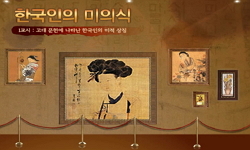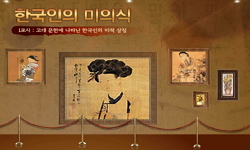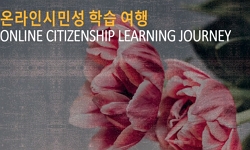In the beginning of a play, when a character is given a motive to achieve an aim, he or she starts to act and struggle to accomplish his or her mission. At the denouement, the character succeeds or fails. In everyday life, a man always is in a particu...
http://chineseinput.net/에서 pinyin(병음)방식으로 중국어를 변환할 수 있습니다.
변환된 중국어를 복사하여 사용하시면 됩니다.
- 中文 을 입력하시려면 zhongwen을 입력하시고 space를누르시면됩니다.
- 北京 을 입력하시려면 beijing을 입력하시고 space를 누르시면 됩니다.
https://www.riss.kr/link?id=A30051795
- 저자
- 발행기관
- 학술지명
- 권호사항
-
발행연도
2003
-
작성언어
-
-
주제어
<극적인 것> ; 체험 ; 극 테스트 ; 반성적 사유 ; 정서적 인식 ; the dramatic ; drama text ; reflective thought ; emotional cognition
-
KDC
800
-
등재정보
KCI등재
-
자료형태
학술저널
- 발행기관 URL
-
수록면
467-491(25쪽)
- 제공처
-
0
상세조회 -
0
다운로드
부가정보
다국어 초록 (Multilingual Abstract)
In the beginning of a play, when a character is given a motive to achieve an aim, he or she starts to act and struggle to accomplish his or her mission. At the denouement, the character succeeds or fails. In everyday life, a man always is in a particular circumstance. Likewise, a character in a play is in his or her own given circumstance. All of them are seeking their own meaning in a particular circumstance and taking a subsequent action by interpreting and judging of the meaning. Although a man outside stages experiences a distressing incident, if he returns to everyday life, it is hard to be called `the dramatic`, On the contrary, even though a performer` s slight confusion of reason and emotion does not change him, the gradually accumulating process of changes can be called `the dramatic`. `The dramatic` is a change. Even if the process of a play is either developmental or regressive, the point is change. But all the changes are not dramatic. The change of `the dramatic` involves external and internal qualities. The former is a change of tempo and rhythm that are revealed by body of a character. This change develops to action and shows itself by a change of tempo and rhythm of circumstance originated by action. The latter involves a character`s inner discovery and perception of something new, expansion and deepening of recognition, insight into human nature and existence. `The dramatic` is completed by communication with audience. A receiver also will subjectively experience authenticity of `the dramatic`, when his or her spirit is enhanced by reflective speculation about existential meaning and identity, various stages of life, society and world through the medium of a play.
동일학술지(권/호) 다른 논문
-
학교 문학교육과 문학 교과서의 재조명 : 교과서 문학 제재의 수용 양상 및 특성 - 제7차 국민공통기본교육과정 교과서를 중심으로 -
- 한국문학교육학회
- 유영희 ( Young Hee You )
- 2003
- KCI등재
-
학교 문학교육과 문학 교과서의 재조명 : 문학 교과서 개발에 대한 비판적 점검 - 제7차 고등학교 「문학」 교과서를 예로 들어 -
- 한국문학교육학회
- 김창원 ( Chang Won Kim )
- 2003
- KCI등재
-
학교 문학교육과 문학 교과서의 재조명 : 제7차 교육과정에 따른 문학 교과서의 내용 분석 연구 - 수록된 문학 작품을 중심으로 -
- 한국문학교육학회
- 박기범 ( Ki Beom Park )
- 2003
- KCI등재
-
학교 문학교육과 문학 교과서의 재조명 : 문학교과서의 해석과 활용에 관계하는 변인들
- 한국문학교육학회
- 한귀은 ( Gwi Eun Han )
- 2003
- KCI등재





 KCI
KCI KISS
KISS






